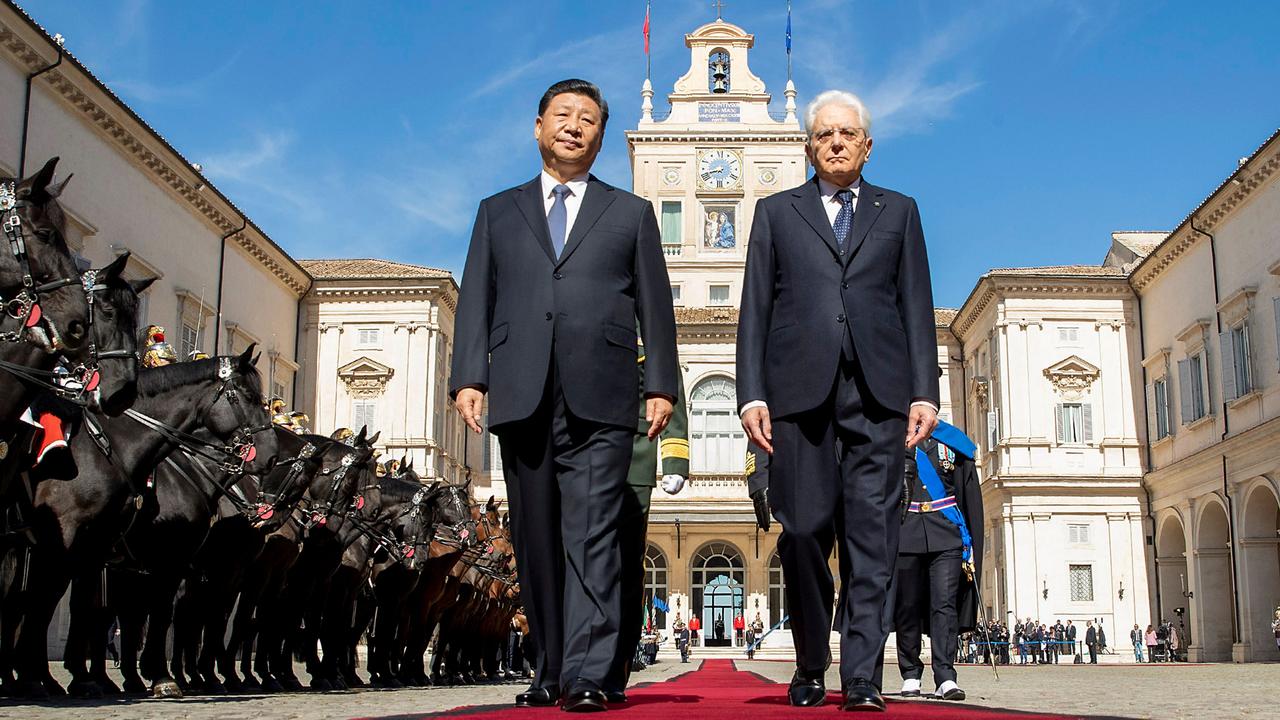Rio Tino exec Stern Hu’s jail term a cautionary tale on dealing with China
Stern Hu likely regularly reviewed his prison’s noticeboard for sentence reductions, then walked away despondently.

The release tonight of Australia’s highest-profile prisoner in China, former senior Rio Tinto executive Stern Hu, provides the business community with a reminder of the extent of the contrasts between the two countries, especially in their legal systems.
Hu’s grim fate — he spent nine years in jail, not much less than the average murderer in Australia — also underlines the importance of paying close attention to constantly changing government and legal parameters, and of being prepared for the ugliest of surprises.
Such requirements naturally raise a further question: to fulfil these requirements, and generally to realise corporate potential in and with China, it would seem essential to deploy there a very senior figure, but might inadvertent events place such a person at risk?
Hu appeared a classic blue-chip Rio type: restrained but articulate, even a little on the scholarly side. His Chinese name is Shitai, but he trained as a violinist and adopted the name Stern after hearing the Israeli virtuoso Isaac Stern play while he was at Peking University.
Hu had direct access to the top levels of the company, for which China Inc was and remains its leading customer, and biggest single shareholder in the form of Chinalco. Hu was jailed after pleading guilty to commercial bribery and industrial espionage — during a period when China and its prime ore suppliers were battling over soaring prices and over the proposal, led by BHP, to shift from annual contract negotiations to market valuation. The market system eventually prevailed, of course.
Hu and three Chinese colleagues were arrested in the aftermath of Rio’s effective blocking of Chinalco’s move to double its stake to 18.5 per cent.
The espionage part of the charges appears to have related to information collected for the price negotiations, which may have been perceived in Western countries as mere diligence, while the bribery charge concerned payments made by mills for Rio — via Hu and his colleagues — to prioritise ore shipments.
The then chief executive, Sam Walsh, described the latter as “deplorable behaviour that is totally at odds with our strong ethical culture”, for which he sacked the four after they were jailed. Whether this would be perceived as a criminal offence in Australia, remains questionable.
They pleaded guilty, as is expected of all those who are formally charged in China.
Not guilty pleas are rare, and are fraught with danger for defendants and their lawyers alike. Witnesses are usually expected to provide written evidence, not to testify in court. If, often following discussions with court officials or police, witnesses resile, then the defence lawyers could themselves face charges.
In Hu’s case, it appears he thought he would be deported once a sentence was confirmed. Instead, he served out his 10 years, minus one year for good behaviour. He would also have been entitled to further remission — but under the governance of strongman Xi Jinping, prison conditions have been toughened. Sentence reductions have been reversed, Those paroled, including on medical grounds, have been brought back to jail, and privileges such as wearing private clothes and using pens have been withdrawn.
Last week, while giving a speech about contemporary China overseas, I bumped into a former white-collar prisoner in China who explained that Hu was likely to have looked regularly at the prisoners’ noticeboard for announcements of sentence reductions, but “walked away despondently”.
The former inmate testified that Hu worked hard to become a model prisoner, becoming a “cell leader” — of the 12 prisoners in his block — “though with a very low-key, hands-off style. Some of these leaders were bastards, he was not”. For instance sharing during the winters, warm clothing he had been given. Members of his family visited Hu on the second Tuesday of every month, when they were allowed, and an Australian diplomat would visit from the Shanghai consulate every quarter, as also provided for under bilateral arrangements.
Hu is 54, married to Julie whom he met at university, and they have two sons, now in their 20s. He was based in Shanghai, but living in China as an Australian citizen, acquired during years in Manly in Sydney.
Thus even though he was not sentenced to be deported, as was for instance the Crown Casino executive jailed in Shanghai, Jason O’Connor, he would need to be given a visa to remain in China following his prison release. Although he would naturally like to see his aged parents in Tianjin before he returns to Australia, the Chinese authorities may not be inclined to make such a concession.
Two of Hu’s Chinese colleagues, Ge Ninqiang and Liu Caikui, have already been freed, but a third, Wang Yong, remains in jail. When writing for Fairfax, China expert John Garnaut reported that Rio obtained — for millions of dollars — advice over the Hu case from former US Secretary of State Henry Kissinger, who has claimed since his historic visit with Richard Nixon to meet Mao Zedong, a special understanding of China, whose governance he greatly admires. Kissinger apparently told Rio simply to focus on the needs of its dominant customer. Which it has done.
This is a position that continues to be adopted by others in the business world concerning China. One fully understands why. But it can mask growing complications as China changes under the “new era” of socialism with Chinese characteristics under Xi’s centralised, personalised, and controlling rule.
In China, as Professor Jiang says, “the borderline between what is public information and a state secret may be easily blurred or crossed”. As Hu discovered to his immense cost, paying so dearly for these and other less questionable but still less than nine years’ worth of sins.





To join the conversation, please log in. Don't have an account? Register
Join the conversation, you are commenting as Logout